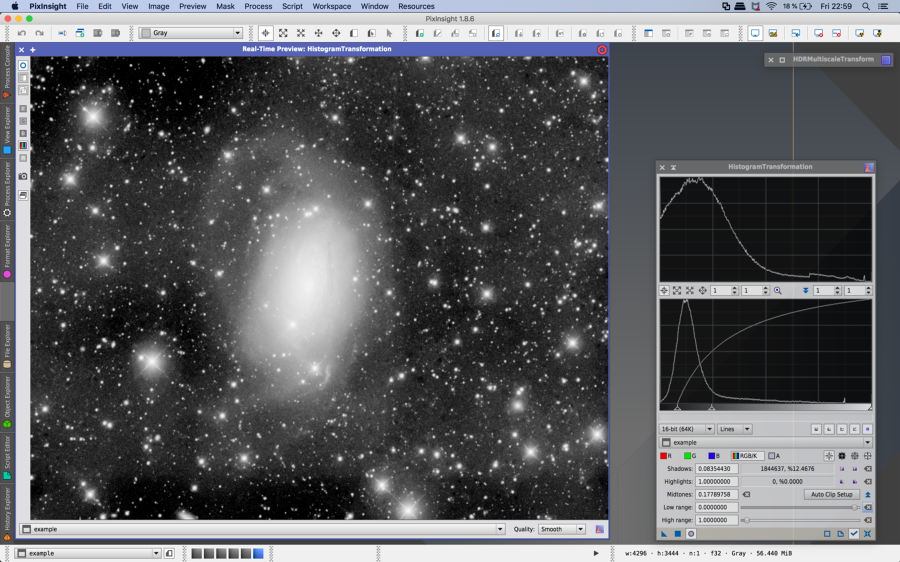Hi Greg,
Thank you for uploading the image. This is not a bug, but just a limitation, or better a characteristic, of the HDR multiscale transform algorithm. This is a heavily stretched copy of your image:

Click on the image for a
full-size version.
There are large-scale brightness variations on the background of this image, in particular at the bottom edge and at the top-left corner, that are changing dramatically the way HDRMT performs in this case, especially the median-HDRMT algorithm.
Because of the implemented multiscale analysis techniques, the HDRMT process is not strictly
previewable. This means that, in general, there is no guarantee that the results achieved when applying the process to a given region of interest will be equivalent to the results achieved on the same region when the process is applied to the entire image. If you apply this process to small previews, you may get very different results with respect to the whole image. To get reasonably accurate and consistent results, the previews must be representative of the existing brightness distribution at the scale of the entire image.
The median-HDRMT algorithm is much more sensitive than the wavelet-HDRMT algorithm to large-scale variations, and this is why you are getting so different results on several previews. This is a limitation of the implemented processes. In this case you should probably use the wavelet-HDRMT algorithm, by disabling the median transform parameter, or you can try cropping the image as necessary for median-HDRMT to work as expected.
Sorry for these limitations, but they are a very small price to pay, IMHO, for the outstanding performance and versatility of these algorithms. The original HDRMT algorithm was created by PTeam member Vicent Peris, who made a fundamental contribution to PixInsight, as well as to the world of astronomical image processing in general. I devised median-HDRMT as a ringing-free variant of the same algorithm. In a future version of this tool we'll try to alleviate its sensitivity to large-scale variations, although this is not the easiest task.